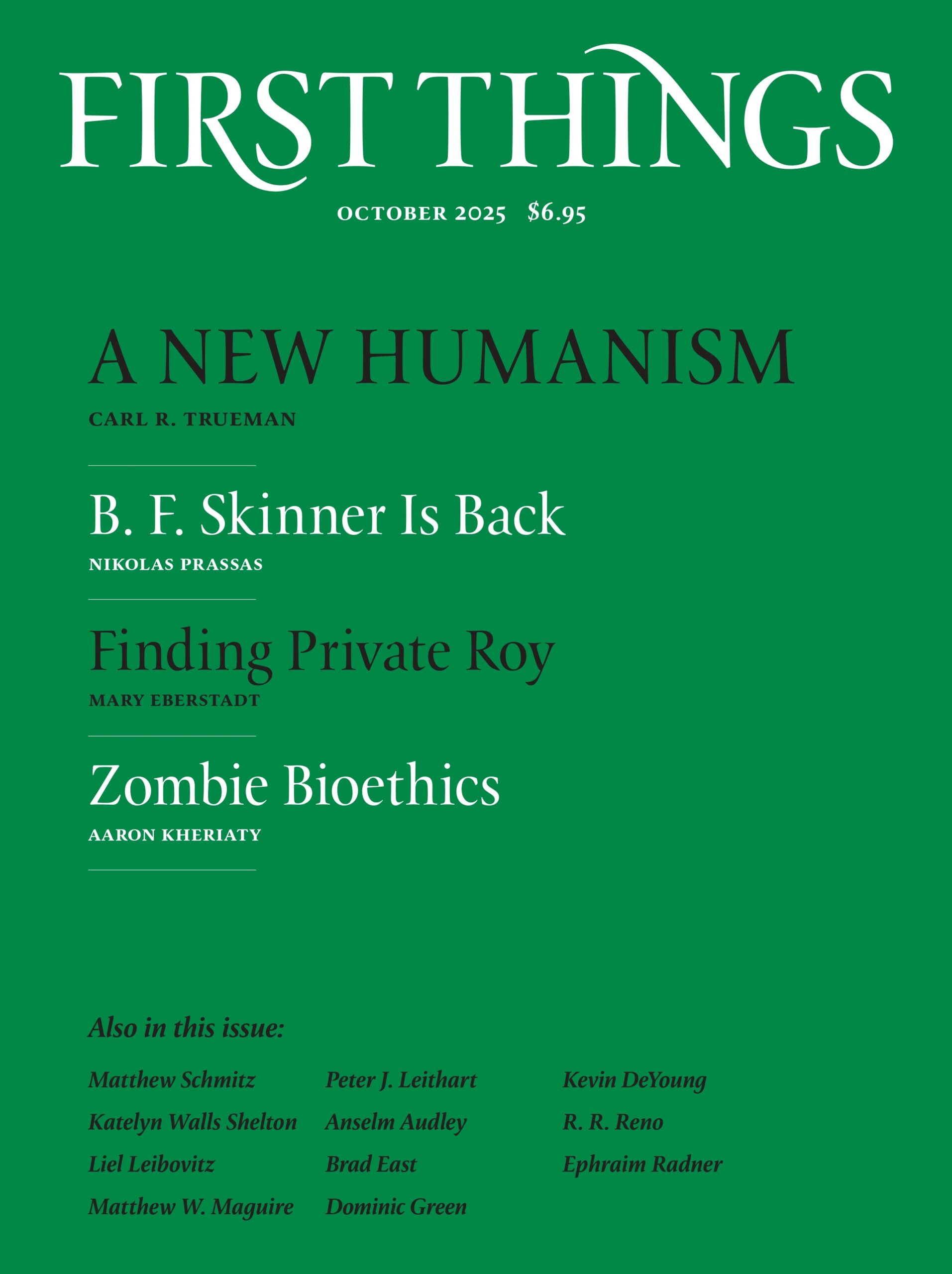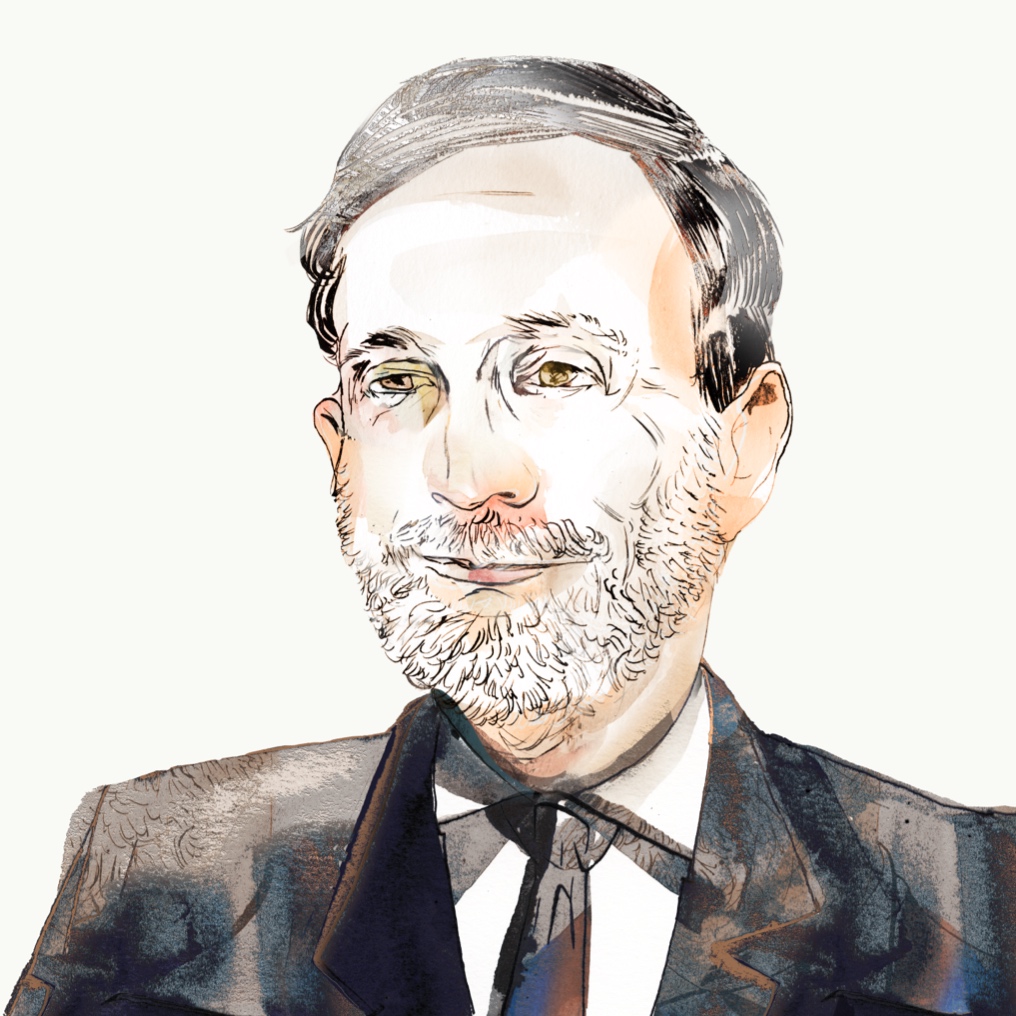
Some years ago, I was visiting an acquaintance in Cambridge, Massachusetts. He had a few friends over for lunch. One was a graduate student at Harvard’s Kennedy School of Government. That institution was founded in 1936 for the purpose of providing America’s leaders with a firm grounding in the latest social-scientific research, the better to inform their decisions and improve the lives of their fellow citizens. And so, it was something of a shock to discover that this young man was unable to express a particular loyalty to his fellow citizens. “Surely,” I pressed him, “you feel a greater responsibility for unemployed workers in Ohio than for those in other countries.” He heatedly dismissed my query, insisting that there can be no moral basis for the “tribalism” implied by my question. His duty was to all of humanity.
This cosmopolitan mentality is widespread among elites, and it troubles Alex Karp. In The Technological Republic: Hard Power, Soft Belief, and the Future of the West (co-written with Nicholas W. Zamiska), Karp inveighs against Silicon Valley’s lack of patriotic ardor. In 2018, employees at Google protested against that company’s contract with the U.S. Department of Defense. A few months later, the anxious denizens of Google’s C-suite decided not to renew the contract. According to Karp, the episode is typical. Tech titans (and their underlings) see “themselves as existing essentially outside the country.” They benefit handsomely from the American regime, which allows them to make fantastic profits. But they cannot rouse themselves to defend the country. Worse, they often demonize those who do so.
Karp is co-founder and CEO of Palantir, a tech company that is well known for the services it provides to the Department of Defense and U.S. intelligence agencies. In this regard, his polemics against the hypocrisies of the tech establishment may seem to be a form of brand promotion. Super-profitable social media companies spend billions to maximize user addiction, while noble Palantir serves the nation. But Karp has bigger fish to fry.
Karp is worried about the triumph of the Last Man. The moniker comes from Nietzsche, who thought that the modern condition encourages two baleful trends. The first is a sentimental, enervating moralism, the sort that awards all runners trophies and shrinks from traditional notions of nobility and excellence. Karp exposes the nihilism implicit in the seemingly well-meaning nostrums of progressive morality. Take “inclusivity.” It promises to break down boundaries. But to do so we’re required to refrain from judgment, which means cultivating an agnostic attitude. Who can say what is “excellent” or “noble”? A smiling pretense of equality must reign, the elimination of rank. Habits become habitual, and over time we find ourselves believing in very little. We have to, the better to promote inclusivity. Karp: “The problem is that tolerance of everything often constitutes belief in nothing.”
Thus, what seems like a grand and ambitious project—to midwife a multicultural society that transcends all differences—produces moral flatness. You have your “values”; I have mine. The implicit relativism unmoors the talented and ambitious members of society. There’s nothing authoritative to honor and serve, so one just gets on with life. The more cynical recognize that mouthing progressive pieties provides protection and helps you get ahead. This pattern of behavior was on full display during the height of Black Lives Matter hysteria. It’s not that ambition has died; rather, for the Last Men who run corporate America, the enterprise of life has little to do with strong beliefs strongly held.
The second trend in modernity is the triumph of a materialist worldview. What really matters in life is the maximization of utility, the attainment of comfort and safety. These influences encourage smallness of soul, a complacent, risk-averse existence. To seek something great is too dangerous. And why bother? As we learn in our college seminars, “greatness” is an illusion, a cultural construction designed to serve the material interests of the ruling class or some other center of power.
One can see the appeal of the Last Man. He promises peace, for if nothing is worth fighting for, then no one will fight. But it is a lifeless and post-human peace. It offers wealth, but no sublime objects of devotion. As Karp puts it, we live in a soul-numbing era in which the greatest ambition of tech entrepreneurs has been to build a world of “online advertising, photo-sharing apps, and food-delivery empires.”
The antidote to smallness of soul is commitment. By Karp’s reading, the second half of the twentieth century was characterized by an unbalanced animus against national identity. (I agree wholeheartedly with this reading of recent history.) Fearful of excessive nationalism, cultural leaders steered our imaginations away from traditional themes of civic solidarity. Karp quotes Richard Sennett, a representative establishment figure, who spoke of “the evil of a shared national identity,” and Martha Nussbaum, who during the heady End-of-History 1990s derided “patriotic pride” as “morally dangerous” and insisted that we pledge allegiance “to the community of human beings in the entire world.”
Roger Scruton dubbed this outlook oikophobia, a fear of affirming one’s own home. Karp insists that we must move beyond this unfortunate mentality. We can start with “a forceful and forthright conversation about national identity.” Ambitious Americans need to place before themselves a shared project, a collective enterprise that they can build up and serve with their ample talent. Rather than endless critique of America’s sins, we need to identify and champion an inheritance worth defending and amplifying.
Karp often defaults to business talk about “innovation,” but his deepest concerns are spiritual. He worries about the eclipse of the heroic dimension of life, and he intuits that we cannot gin up aspirations simply by calling for them. The human spirit responds to the lure of something greater, something transcendent. Higher things summon us, demanding our loyalty and asking for sacrifice and service. Therein lies the heroic spirit. Men do not aspire to great things in order to burnish their résumés. They do so when fueled by the burning power of love and devotion.
There are three main domains of love and devotion: God, family, and nation. Karp quotes Irving Kristol’s call for the West “to breathe new life into the older, now largely comatose, religious orthodoxies.” But in The Technological Republic, Karp mentions the things of God sparingly. About marriage and family he has nothing to say, which is sad. For the most common heroism in human affairs can be found in steady marital loyalty and sacrificial love of one’s children.
Karp’s emphasis falls on renewing the American nation. This project is not only needed; it is an entirely realistic enterprise. The American people hunger for solidarity. They may be seduced by the cornucopia of consumer goods, but they do not wish to live as Last Men. They desire to be part of a great and noble undertaking, and there can be no doubt that America’s powerful mythology, if revived by intelligent and committed leaders, can satisfy that desire.
I can hear the chorus of objections. “Nationalism encourages xenophobia, promotes flag-waving excess, and leads to conflict!” Yes, all strong loves can go astray. But we do well to keep the words of the German poet Hölderlin in mind: “But where danger is, also grows the saving power.” Karp has made an astute discernment. We live in a love-deprived age. And he proposes the proper remedy. We must take the risks of commitment if we’re to revive the greatness of the human spirit.
An Important Civics Lesson, Well Taught
The permanent exhibit in the rotunda of the National Archives in Washington, D.C., includes original copies of…
The Cambrian Implosion
A historical moment ago, it was too obvious for words, but: Life is a blessing. So to…
Tyler Robinson and the Violence of Porn
Multiple media outlets have reported that Tyler Robinson, the alleged murderer of conservative activist Charlie Kirk, was…


